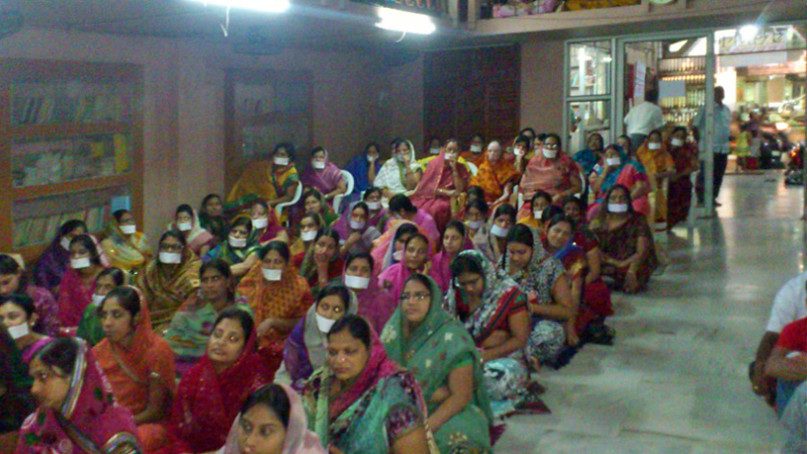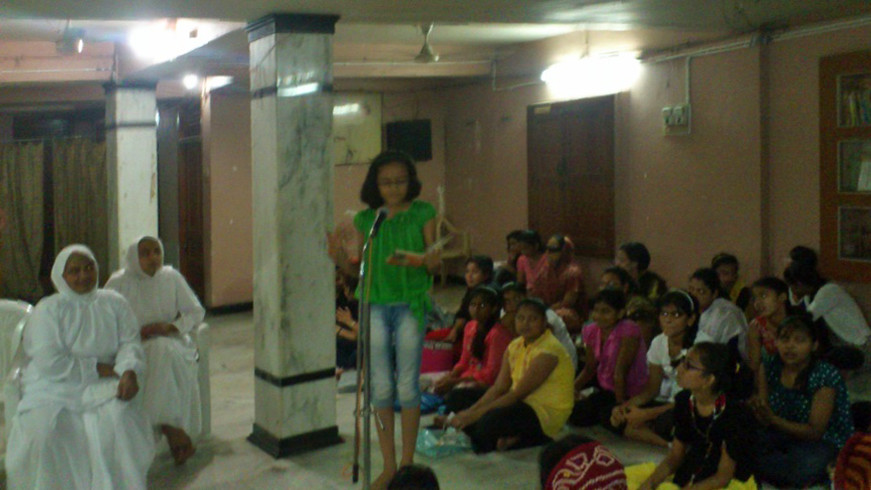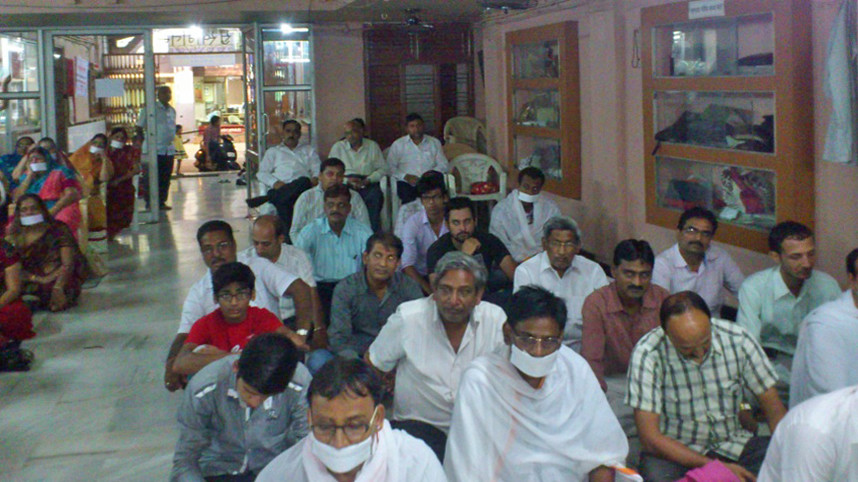
05.09.2013- Maun Divas
Day Fourth of Paryushan 2013 programme was celebrated as 'Maun Divas in presence of Samani Madhur Pragyaji at Amolak Bhawan, Sadar Bazar, Raipur, Chhattisgarh. Samani Madhur Pragyaji spoke in detail about the 'Maun Divas’.
Moun for a few hours can be peace giving, energy saving and relaxing. Control over speech is indispensible for meditation. In ancient Jain scriptures Moun used to refer knowledge rather than not speaking. Limited speech is the simplest way of keeping Moun vrata, but the person speaking less can create problem by using illegitimate language. An economical use of words is always more effective than using too many words. Simultaneously it is also important that even if you have the right thoughts but if you are blunt and hasty, your message will loose its importance. Thus we should speak only when it is demanded otherwise it is better to remain silent.
One of the components of self restraints is speech restraint. For any organisation be it political, social, religious or familiar, speech restraint is vital for its head to observe, because in its absence either the organisations will not form at all or if formed, will soon disintegrate. Utmost care has to be taken in this regard, for sometimes, even the use of one wrong word becomes the cause of the destruction of an organisation. We know that sometimes a single expression become responsible for a war.
On maun divas Samani Punit Pragyaji addressed the shravak on the preaching’s of Lord Mahavir explaining the twenty seven bhavs. She in detail explained the first bhav through narrating the story of Samrat Bharat and Marichi which states that Lord Mahavir will be the last Tirthankar.


07.09.2013- Jap Divas
Day Sixth of Paryushan 2013 programme was celebrated as 'Jap Divas’ in presence of Samani Madhur Pragyaji at Amolak Bhawan, Sadar Bazar, Raipur, Chhattisgarh.
She said that the Mantras have an important role in meditation. It is also helpful in realising the self. Mantras are used for improving mental concentration. The chanting of mantra is a tool that is generally used for making the mind focussed on one object. Mantra chanting is a simple exercise for achieving better concentration. An articulation of a word generates special kind of sound waves and vibrations, which influence our mind. Chanting of mantras is of three types:
- Jap
- Antar Jap
- Mansik Jap
These are characterized by highly voiced, low voiced and silent chanting of mantras, respectively.
For the chanting of mantra to be effective and fruitful, it is essential that recitation be done diligently and systematically in correct manner. Wrong pronunciation of words, lack of mental concentration during chanting, and too fast or too lethargically performed chanting are some of the major obstacles in realizing the benefits of this techniques.
Samani Punit Pragyaji on spiritualism stated that to get the divine light of spiritualism first we should search for the following:
- Who we are?
- Where we want to go?
For being spiritual we should first know ourselves.
Samani Ruchi Pragyaji interacted with shravaks on significance of importance of chanting Navkar mantra. She said that Navkar mantra is the eminent constituent of OM. Navkar mantra is regarded as the mahamantra. It leads to fulfilment of all desires.
 Ritu S. Jain
Ritu S. Jain